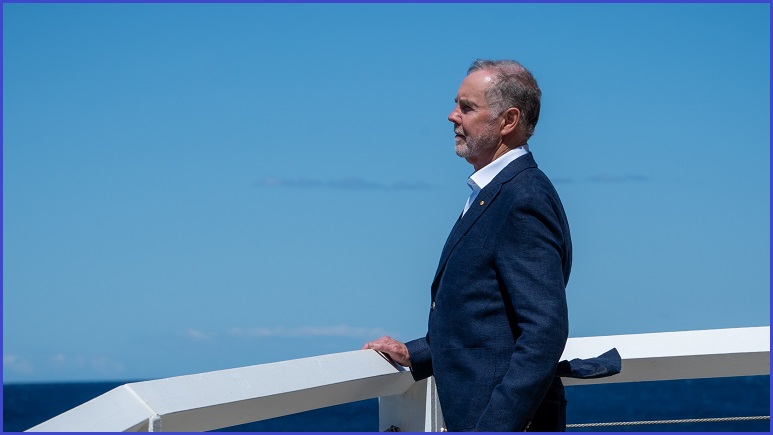One of the world’s leading oceanographers Professor Trevor McDougall took home the $250,000 Prime Minister’s Prize for Science on Monday evening for advancing our understanding of how oceans work.
Professor McDougall’s work on ocean mixing – which he describes as a process akin to “stirring milk into your coffee” – has redefined how scientists track the transfer of heat around oceans.
“One day I was swimming before breakfast and it came to me to try a different variable,” he said.
“And now, that temperature variable has been adopted internationally as the way of representing temperature and heat in marine science.
“It’s a factor of 100 times better at doing that than our previous potential temperature [variable].”
Professor McDougall said it was “an incredible honour” to receive the Prime Minister’s Prize for Science.
“It's really great that the field of oceanography and climate science has been recognised in this way, because we need these sciences more than ever in the future to understand how the planet is and will evolve with time,” he said.
Prime Minister Anthony Albanese said Professor McDougall’s research, which included building software to help other oceanographers around the world measure ocean mixing, has shown how Australians can lead the world when it comes to climate science.
“Tackling climate change is one of the great scientific challenges of our era and understanding our oceans is absolutely critical,” Albanese said.
“Over the last 23 years, these Prizes have recognised extraordinary Australians whose scientific research and innovation have broken new ground.”
The 2019 prize went to Emeritus Professor Cheryl Praeger whose 40-year maths career have greatly influenced the field of cryptography.
More winners
Two teams of scientists also received the $250,000 Prime Minister’s Prize for Innovation for their contributions to public health and mining technologies.
Dr Elisa Mokany and Adjunct Professor Alisson Todd from SpeeDx were recognised for their commercialised molecular diagnosis technology which, like the PCR tests we have gotten used to during the COVID-19 pandemic, allows for fast, accurate, and cheap screening for diseases and viruses.
Dr Nick Cutmore, Dr James Tickner, and Dirk Treasure from PhotonAssay took out the other Prize for Innovation through their company’s use of X-rays to measure the amount of valuable materials like gold present in ore samples.
Industry and Science Minister Ed Husic said both teams prove how scientific research can lead to commercialised applications that can radically transform industries.
“Research-based innovation leading to commercialisation demonstrates the incredible national value of Australian science.
“Science and research at its best can change lives and make Australia a more sustainable, prosperous place.”
Five other prizes were awarded on Monday including two for primary and secondary education, validating the important work of teachers who lead the next generation of Australian scientists.
George Pantazis from Marble Bar Primary School in WA took out the $50,000 Prime Minister’s Prize for Excellence in Science Teaching in Primary Schools for the way he has combined First Nations knowledge with the science and technology curriculum.
Veena Nair from Viewbank College in Victoria received the $50,000 Prime Minister’s Prize for Excellence in Science Teach in Secondary Schools for her efforts to build upon Science, Technology, Engineering, Arts, and Maths (STEAM) education bringing together the best of the humanities and sciences.
Nominations are now open for the 2023 Prime Minister’s Prizes for Science.










